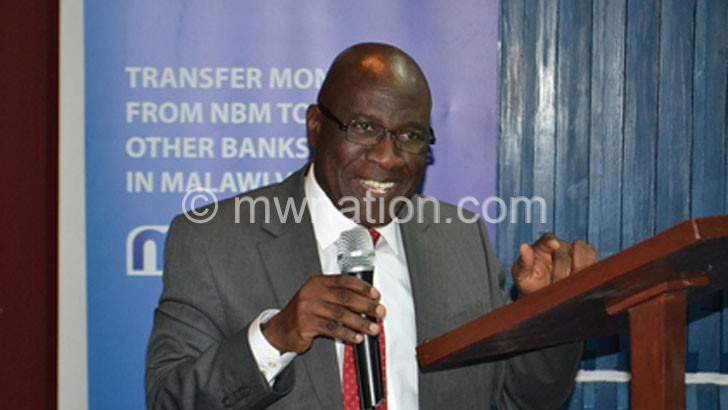Private sector credit slows in Sept—RBM
Credit to the private sector slowed to 22.3 percent in September from 24.4 percent in the previous month, Reserve Bank of Malawi (RBM) figures have shown.
In its published September Monthly Economic Report, RBM figures indicate that this, however, was higher than the annual growth of 21.7 percent registered in September 2021.

Reads the report in part: “On a monthly basis, the stock of private sector credit increased by K10.4 billion (1.1 percent) to K985.9 billion in September following another upsurge of K16.4 billion (1.7 percent) in August.”
The sources of this growth, according to the central bank. were individual household loans and commercial and industrial loans which rose by K8.4 billion and K6.9 billion during the month, respectively.
Nonetheless, loans for mortgages and foreign currency-denominated loans declined by K3.6 billion and K2.6 billion during the same period.
In terms of economic sectors, the monthly increase in private sector credit emanated mainly from the community, social and personal services (K28.5 billion); electricity, gas, water and energy (K7.0 billion); wholesale and retail (K5.6 billion); transport, storage, and communication (K1.8 billion); and mining and quarry (K46.1 million) sectors.
Conversely, credit to manufacturing; financial services; restaurants and hotels; real estate; agriculture, forestry, fishing and hunting; and construction sectors recorded repayments of K22.5 billion, K7.6 billion, K2.4 billion, K565.6 million, K314.5 million, K189.4 million in September 2022, respectively.
Reflecting the foregoing, the community, social and personal services sector continued to hold the largest share of the outstanding private sector credit at 33.6 percent, followed by the wholesale and retail trade at 21.6 percent then the agriculture, forestry, fishing and hunting at 17.9 percent; and manufacturing at 9.4 percent.
Meanwhile, analysts have observed that the credit composition in the country is undesirable, saying that credit spread gives direction to where the economy should go forward.
Malawi University of Business and Applied Sciences economics professor Betchani Tchereni observed that the data shows that the country remains a highly-consuming and importing nation.
He said: “Most of these personal loans are used to acquire conductive goods such as electronics, motor vehicles and sometimes for holidays.
“This is a situation which on the other hand is contributing to the worsening depreciation of the kwacha. An ideal situation is where we have more investment loans than consumption loans.”
Catholic University of Malawi economics lecturer Hopkins Kawaye also observed that the current borrowing pattern is not only dangerous for households, who will eventually have to pay back, but the economy as well.
“If anything, if people are to borrow, let these loans be taken for investment in any investment avenues that can give them returns and not purely for consumption.”
Bankers Association of Malawi (BAM) president Macfussy Kawawa, in a recent interview, said banks are doing their part in investing in productive sectors, “but growth has not been significant due to economic challenges as the country has not seen new investments that banks could be financing”.






One Comment